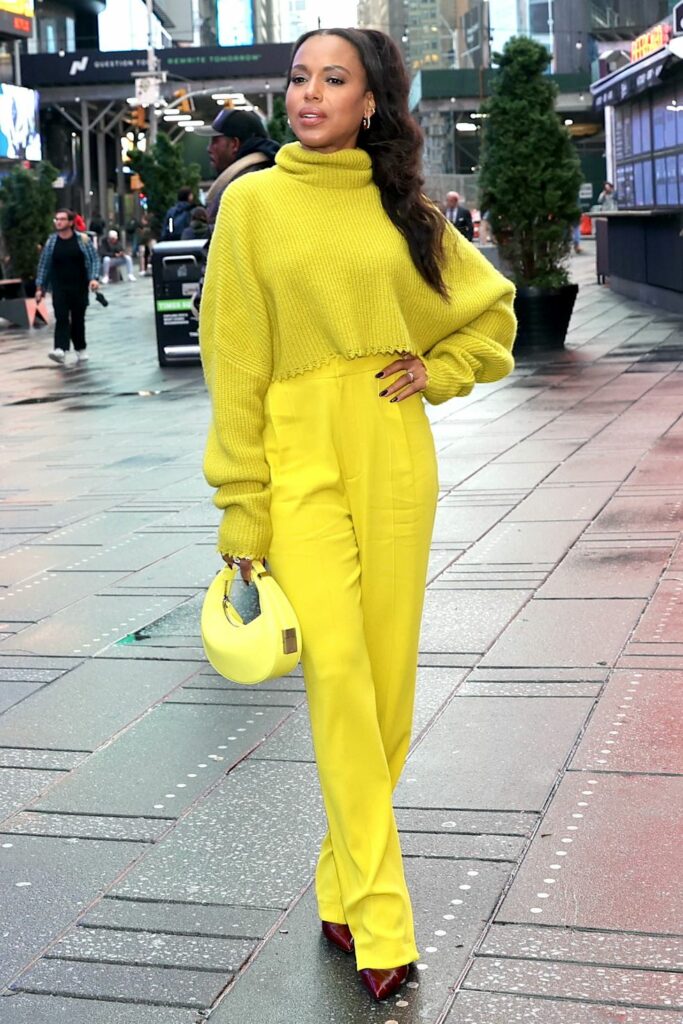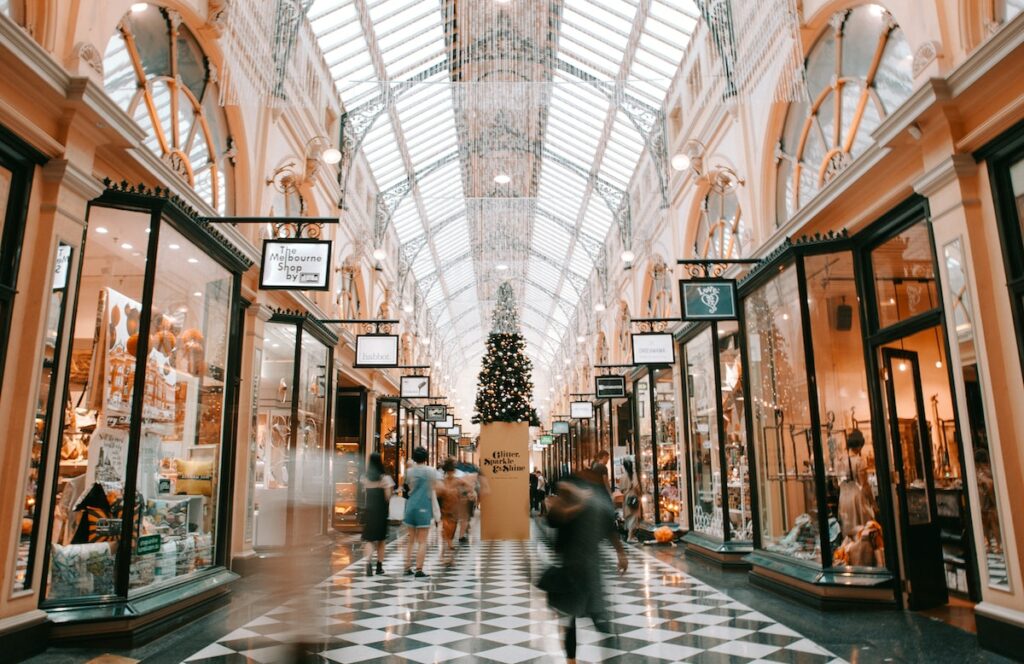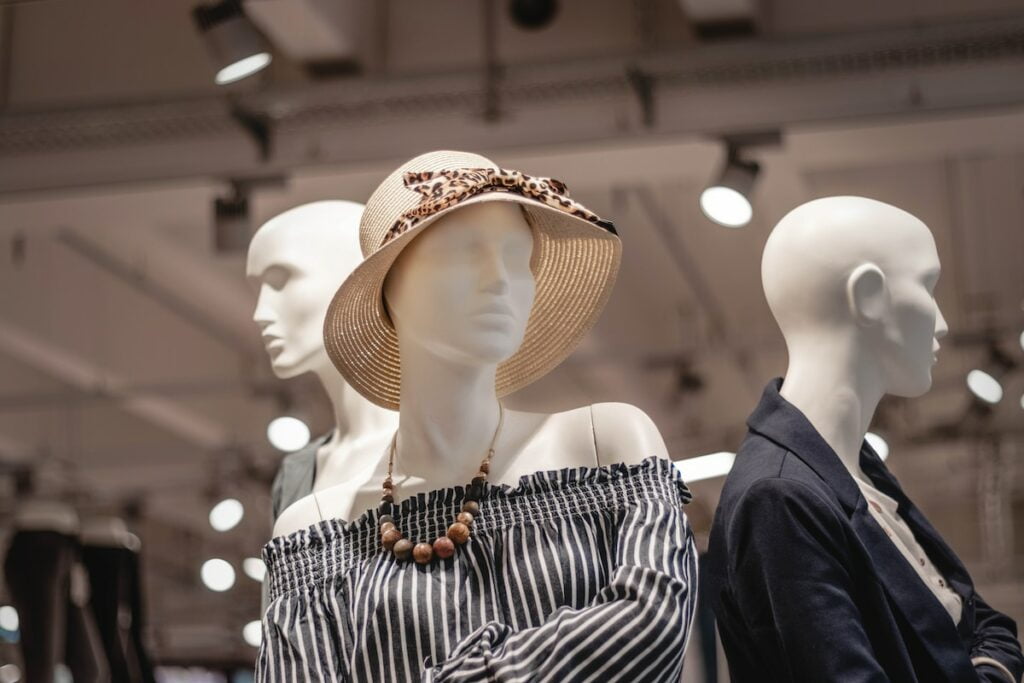Fashion with a Conscience: The Rise of Ethical Luxury Brands

It is fair to say that in the world of fashion, change is the only constant. As we witnessed the culmination of mastery and innovation on the runways of this autumn’s most prestigious fashion shows, a remarkable shift is taking place—one that promises not just glamour and elegance but also a profound commitment to ethics and sustainability: fashion with a conscience
Coming back from the runaways, we had an a-ha moment while admiring Kerry Washington, a radiant lime-green vision that not only turned heads but also captures her signature style—fearless, vivacious, and utterly captivating. Paired with striking burgundy heels, Kerry’s fashion statement was nothing short of spectacular, making her this autumn’s goddess, an inspiration for both fashion enthusiasts and bookworms.
What continues to captivate us, on and off the screen, on and off runaways, influencing our fashion choices?
Think cruelty free silk, cotton, cashmere, camel, wool, and is not just a nod to elegance but a conscientious choice. This selection stands in stark contrast to the environmentally taxing petroleum-based materials, tainted by the use of toxic dyes. Recognising the small family farms and businesses, championing ethical practices and yielding rewards that reverberate through the entire chain – from the hands that hack the traditional crafts to the discerning souls who choose to wear them, all while leaving a kinder footprint on our precious Earth.
Ethical luxury brands are emerging as the vanguards of this new direction, challenging traditional notions of opulence and exclusivity, and ushering in a more conscientious era in the world of fashion. These brands are not only redefining what it means to be luxurious but also reshaping the very essence of fashion shows themselves. In this exploration, we delve into the transformative impact of ethical luxury brands on the latest fashion shows, illuminating the runway with values of sustainability, ethical production, and social responsibility.
In an era where environmental and social issues are at the forefront of global consciousness, the fashion industry is undergoing a profound transformation. No longer is luxury defined solely by opulence and exclusivity; instead, a new wave of ethical luxury brands is emerging, reshaping the industry’s landscape. These brands prioritise sustainability, ethical production, and social responsibility, setting a new standard for the fashion world.

The Growing Demand for Ethical Luxury
Consumers today are increasingly aware of the environmental and ethical implications of their purchasing decisions. They are demanding transparency, accountability, and ethical practices from the brands they support. According to a 2020 survey by McKinsey, approximately 57% of consumers are willing to change their shopping habits to reduce their environmental impact. This shift in consumer behaviour has not gone unnoticed by luxury brands.
Sustainability as a Driving Force
Ethical luxury brands are leading the charge in embracing sustainability. They understand the urgent need to reduce the fashion industry’s enormous carbon footprint. Some luxury fashion houses have committed to going carbon-neutral or have adopted circular fashion practices, emphasising longevity, durability, and recyclability. For example, Gucci pledged to become carbon neutral in its operations and supply chain by 2020, while Stella McCartney has long been an advocate for sustainable and cruelty-free fashion.
Ethical Production and Fair Labor
Ethical luxury brands prioritise fair labour practices, ensuring that the people behind their products are treated ethically and paid fairly. Many have turned to local artisans and craftsmen to create unique, handcrafted pieces, preserving traditional techniques and supporting local economies. Brands like Patagonia and Eileen Fisher are renowned for their commitment to fair labour practices, ensuring their supply chains adhere to the highest ethical standards.
Transparency and Accountability
One of the key hallmarks of ethical luxury brands is their commitment to transparency and accountability. They often provide detailed information about their supply chain, sourcing practices, and production methods. Consumers can trace the journey of a product from its raw materials to the finished piece. This transparency empowers consumers to make informed choices and hold brands accountable for their actions.
Positive Impact on Communities
Beyond environmental concerns, ethical luxury brands also make significant efforts to positively impact communities. Some donate a portion of their profits to charitable organisations, while others collaborate with local communities to create economic opportunities. For instance, Toms, a luxury footwear brand, pioneered the “One for One” model, where for every pair of shoes sold, another is donated to a child in need.
Challenges and Progress
While ethical luxury brands are making strides towards a more sustainable and responsible fashion industry, challenges remain. These brands often face higher production costs due to sustainable materials and fair labour practices. Additionally, achieving genuine sustainability requires ongoing innovation and investment in research and development. However, many luxury brands are embracing these challenges as opportunities for growth and positive change.
The rise of ethical luxury brands marks a significant shift in the fashion industry. As consumers become more conscious of their choices, these brands are setting the standard for a new era of luxury—one that prioritises sustainability, ethical production, and social responsibility. This shift not only benefits the planet and its inhabitants but also empowers consumers to make fashion choices that align with their values. As ethical luxury brands continue to flourish, they are proving that fashion with a conscience is not just a trend but a powerful force shaping the future of the industry.

Fashion, like a grand memory lane, is a journey through time and style. In the relentless pursuit between innovation and tradition, luxury brands have often found themselves at crossroads, momentarily forgetting the artisans and traditions that once defined the essence of their creations.The fashion narrative is evolving in unexpected ways and there’s a profound realisation taking root—a rediscovery of the timeless value in craftsmanship and traditional artistry.
Not surprisingly, in their quest to redefine opulence, they are returning to their roots. They are reaching back to the hands of skilled artisans who have honed their craft over generations. In this reconnection with tradition, they find not only the charm of yesteryears but also a path towards sustainability.
Preservation of customs and heritage has become a sacred mission for luxury brands who are coming back from a long amnesia, growing a conscience. Despite globalisation sometimethreatenshavibh a tendency to homogenise cultures and aesthetics, fashion houses are taking a stand. They are embracing the distinctiveness of traditional craftsmanship, celebrating the intricate patterns woven with expertise passed down through the ages.
Yet, this conscious turn toward heritage is not just about nostalgia; it’s a necessary act of mindfulness. Luxury brands are re- discovering that sustainability is woven into the fabric of traditional methods. The production of handmade works, often requires far fewer resources and energy than mass production in sprawling factories.
From Silk farms to artisans, there is a sense of purpose and reverence for every traditional craft, utilizing luscious natural materials nurtured by the Earth, carrying a connection to nature that goes beyond the superficial layers of synthetic alternatives.
In this conscious revival of craftsmanship, luxury brands are not just preserving the past but forging a path towards a more sustainable future. They are embracing the elegance of handmade creations that, like cherished memories, stand the test of time. These creations come alive not within the cold confines of a factory, but in the warm embrace of human hands, guided by tradition, and fueled by a profound commitment to preserving the planet.
Fashion with a conscience is not about a return to roots; it’s an evolution, a reawakening, and a pledge to leave a kinder footprint on the Earth. It’s a remembrance that, in the threads of tradition and the expertise of skilled artisans, there lies a blueprint for a more sustainable and vibrant tomorrow—a memory lane worth reimagining with a clean conscience.
Do you want to share your story and inspire our readers ? Know that every story is paving the way for a brighter, happier future.





